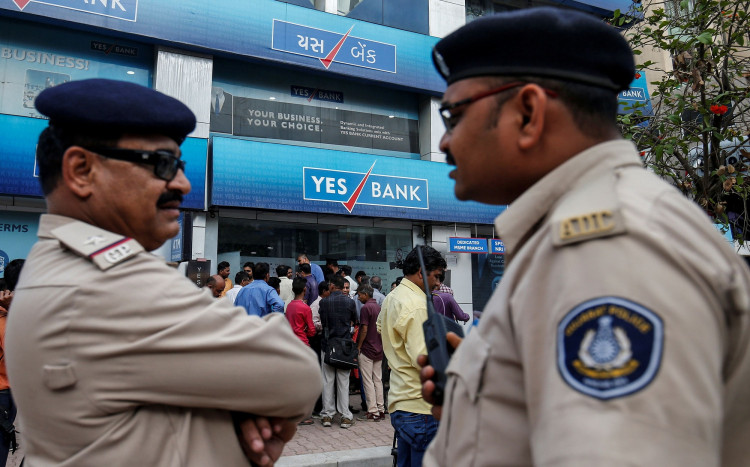Indian private sector bank Yes Bank Limited has just been bailed out by the country's government to shore up confidence in the nation's banking system. The Reserve Bank of India, the country's central bank, announced late last week that it would be taking over the bank's operations after it noticed "serious deterioration" in its business.
Last week, the central bank placed a 30-day moratorium on Yes Bank's operations. It also suspended and superseded the bank's board of directors. The actions were taken after several inconsistencies and failures were found out by regulators. This included the bank's underreporting of its non-performing assets, failure to raise new funding and inaccurate statements of confidence.
The central bank also imposed limitations on withdrawals of no more than Rs 50,000 from each account. This caused a nationwide panic amongst account holders, who became increasingly worried about their deposits.
Following the news of the government takeover of India's fourth-largest private lender, Yes Bank shares plummeted by more than 56 percent. The Reserve Bank of India announced that it has prepared a draft revival plan for the troubled lender, a plan that will involve the purchase of a 49 percent stake in the company by the government-owned bank, the State Bank of India.
This isn't the first time that the bank had to be bailed out by the government. In 2018, the Reserve Bank of India was forced to step in to forcefully oust the company's founder, who had worked as its CEO for the past 14 years. The central bank replaced the CEO with former Deutsche Bank India chief Ravneet Gill in an attempt to save the company.
The takeover comes just before the arrest of the bank's founder and former managing director, Rana Kapoor, on Sunday. The executive was taken into custody by the Enforcement Directorate over money-laundering charges. The Central Bureau of Investigation had also filed separate charges against Kapoor over his alleged corruption during his tenure.
Kapoor was taken to a Mumbai court over the weekend after a manhunt that included searches at his and his daughter's residences in Mumbai and Delhi. The 62-year old executive reportedly refused to cooperate with the investigation over his alleged crime that included the laundering of more than Rs 4,300 crore, or roughly around $581,000. His lawyers told the court that Kapoor was merely being used as a scapegoat over the public outrage caused by the central bank's moratorium and withdrawal limits.





